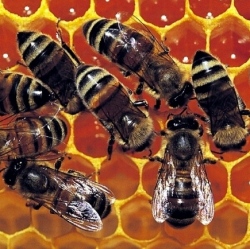
People can become addicted to eating for its own sake but not to consuming specific foods such as those high in sugar or fat. Edinburgh University scientists found no strong evidence for people being addicted to the chemical substances in certain foods. They found the brain does not respond to nutrients in the same way as it does to addictive drugs such as cocaine.
However, people can develop a psychological compulsion to eat. This is driven by the positive feelings that the brain associates with eating, the researchers said. The study, which examined the scientific evidence for food addiction as a substance-based addiction, is published in Neuroscience and Biobehavioral Reviews. The scientists said it was a behavioural disorder and could be categorised alongside conditions such as a gambling addiction. They suggested tackling the problem of obesity should be moved away from food itself and instead focussed on the individual’s relationship with eating.
